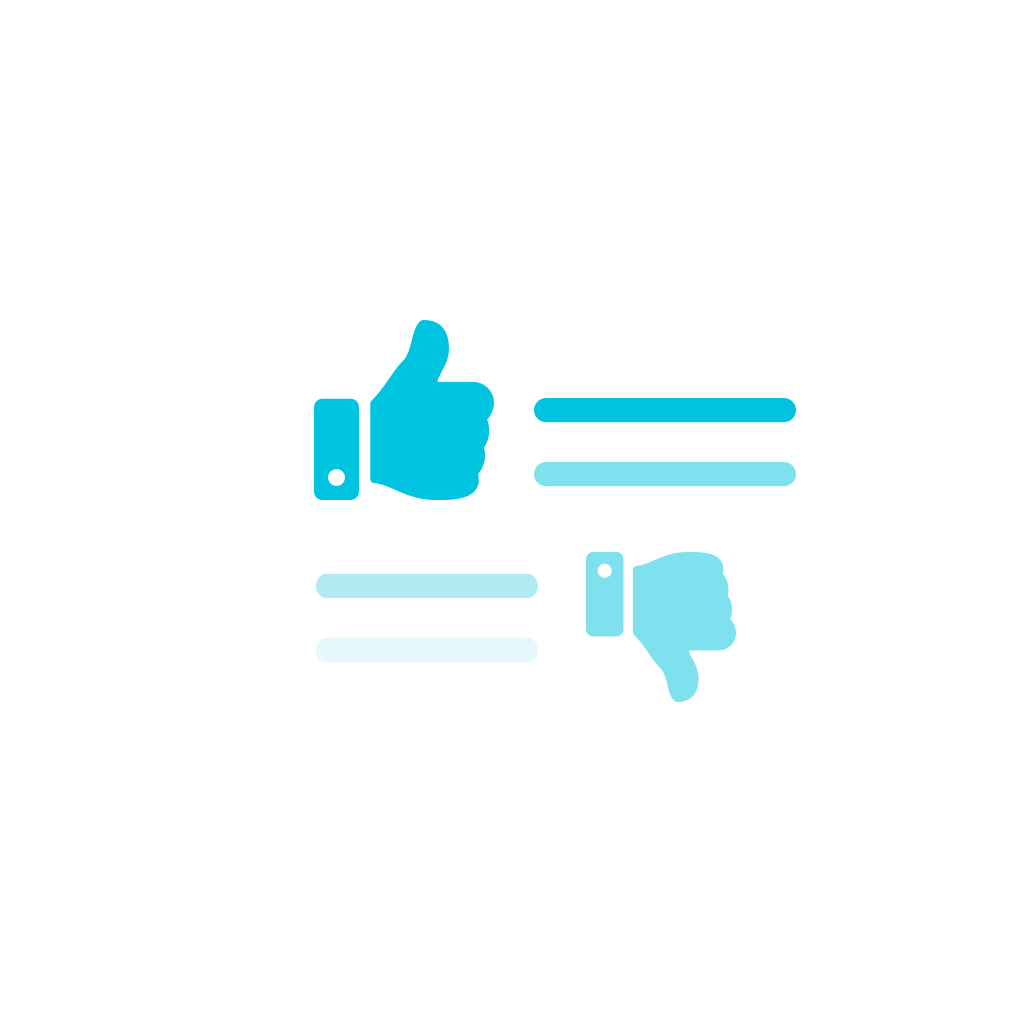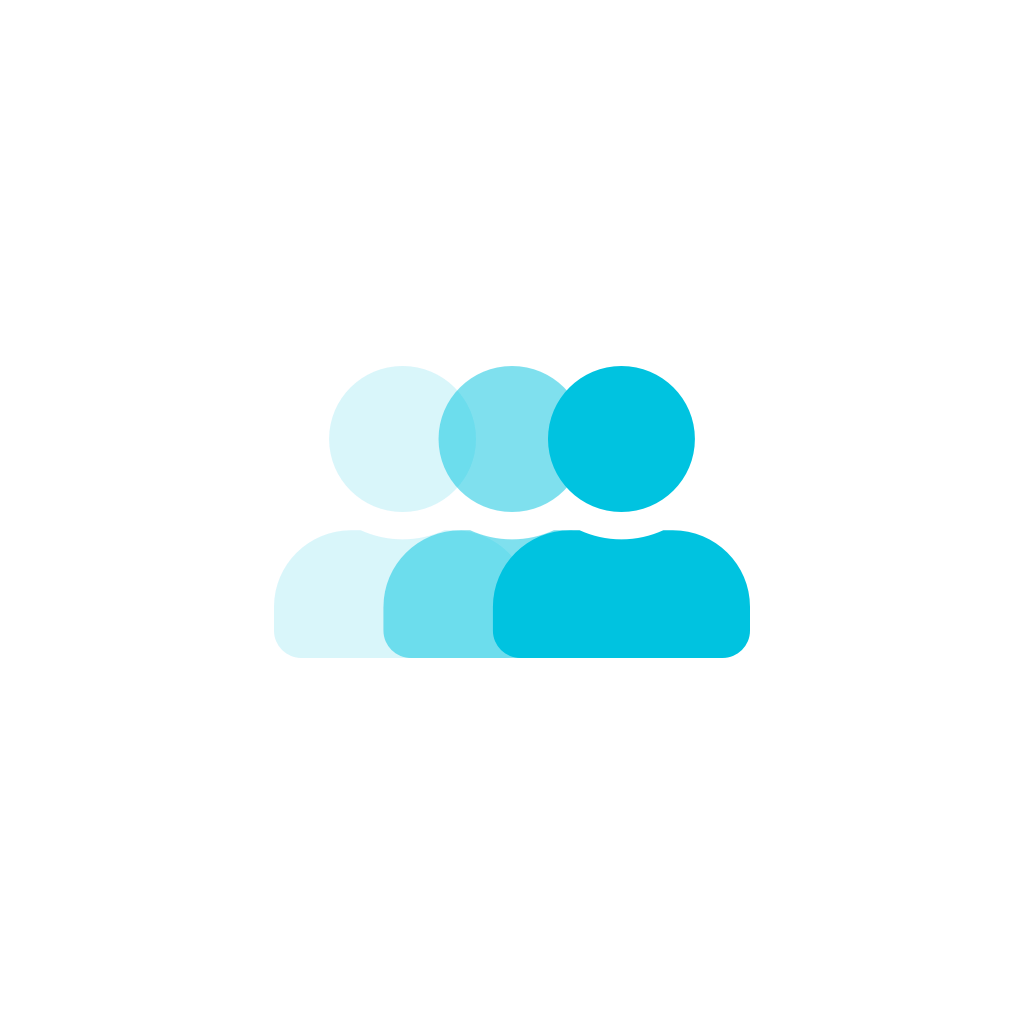Decreasing employee attrition in hospitality starts with taking a hard look at the hiring process. Overhauling the candidate selection flow ensures that only the best fitting applicants move forward to the interview stage. And by best fitting, we mean candidates who have the personality traits, characteristics, and skills to not just survive in the hospitality business, but thrive.
It takes a certain type of person to excel at a hospitality job, and experience is not always the best predictor of future job performance in this sector.
Top performing hospitality employees have outstanding communication skills, are team players, show initiative, are quick learners and have the motivation to deliver outstanding customer service time and again, all these while dealing patiently with customers.
In this article we’ll explore what types of pre-employment assessments work best to identify the top talent in the hospitality industry, and how to evaluate the effectiveness of assessments used in your candidate selection process.
What’s in?
Like what you see?
Don’t miss out. Subscribe to our monthly digest to get the latest TA and TM resources delivered right to your inbox.
What types of pre-employment assessments work best for hospitality?
There are a wealth of pre-employment assessments hiring managers and recruiters in the volume hiring space can draw upon – aptitude tests, verbal reasoning tests, personality questionnaires, cognitive ability tests, or job knowledge and skills tests.
However, based on our experience in the hospitality sector, we recommend employers to use situational judgment tests in combination with personality questionnaires to assess job fit and predict future job performance.
This combination has proven to be effective for our customers, not only in assessing the job and culture fit, but also in ensuring that the selected candidates stay in the job for longer and perform better than the average employees.
While many hospitality organizations use out-of-the-box solutions to evaluate the competencies of job applicants, these aren’t always helpful in the long run, due to their generic nature. Moreover, many assessments on the market use industry benchmarks for scoring, not company-specific ones, so they won’t be able to predict the performance of a candidate in that specific company and role.
Finally, many assessments on the market are designed as one-way questions which don’t tell candidates much about the company culture, role, or day to day tasks. This leaves candidates uninformed, and fails in managing their expectations, contributing to the high rates of early attrition that are typical for the hospitality industry.
At Harver, we recommend using custom SJTs, as this gives organizations the chance to showcase the company culture and explain the specifics of the role, enabling candidates to self-select out of the process if they don’t like what they see.
We’ve explained our approach to developing assessments, as well as our two-way matching framework, in the articles below.
By assessing applicants for the characteristics and traits that the top hospitality employees in your organization possess, you’re more likely to improve quality of hire and retention rates because you’ll have employees who fit your specific reality.
Let’s now take a closer look at both these types of assessments – SJTs and personality questionnaires – to understand how they work.
Situational judgment tests (SJT)
Situational judgment tests are one of the most effective types of pre-employment assessments for high volume recruiting. SJTs not only assess an applicant’s fit for the role, but they give the candidate an insight into what the job entails on a daily basis, managing their expectations.
Harver’s SJTs, for example, are fully customizable, meaning you can include situational questions tailored to the hospitality role you’re recruiting for. For example, candidates who are applying for an entry-level job as front desk in a hotel might be shown a video of a customer asking them a question about guest services while they’re checking another customer in.
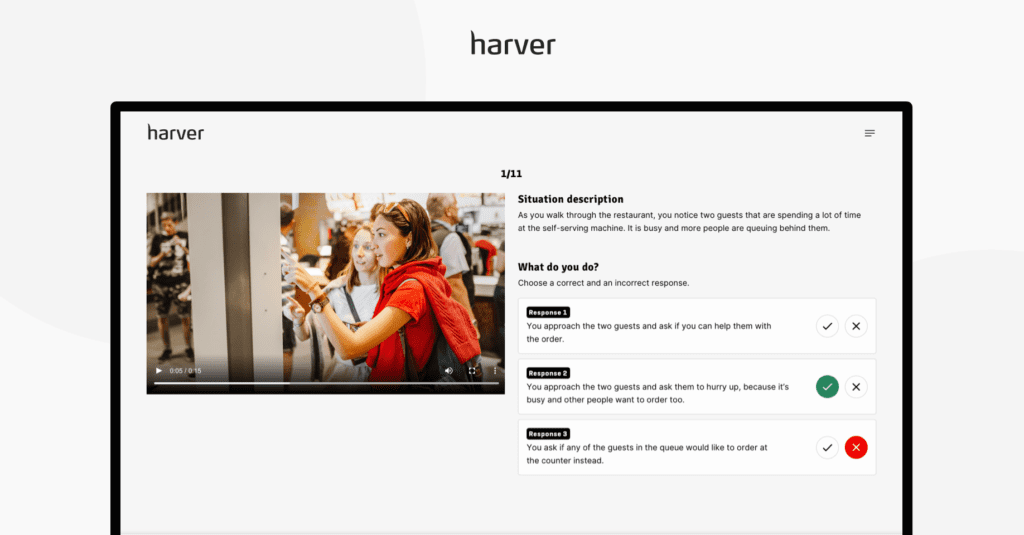
The candidate is asked to choose how best to handle the situation from a selection of three possible answers. The candidate has to rank the answers from most effective to least, with their answers being scored for customer orientation, service, or even sales skills.
The scored answers are then compared against your employer-specific benchmarks, i.e. the gold standard appropriate reaction to how your top performers tackle these realistic job scenarios. This makes it very easy for recruiters and hiring managers to evaluate and compare candidates, and eliminates human bias from the process, as TA teams can make hiring decisions based on hard data.
Because they are fully customizable, you can change the content of the assessments to evaluate applicants for a range of appropriate skills your role requires. So once we know what you’re looking for in your ideal candidates, we design SJT scenarios to identify these traits in applicants.
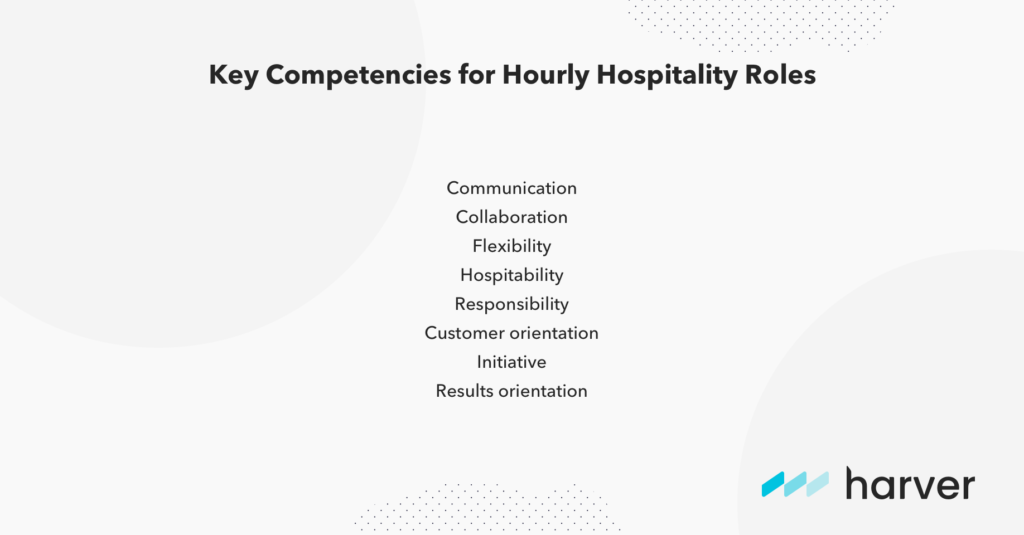
For example, suppose customer experience is one of your core business values. We would design a situation to assess candidates for their communication skills, how hospitable they are, their customer-orientation, and their initiative.
You can assess applicants for: communication, collaboration, following procedures, flexibility, how responsible someone is, how hospitable, customer-orientation, initiative, result-orientation etc – all the skills necessary to be among your top hospitality performers.
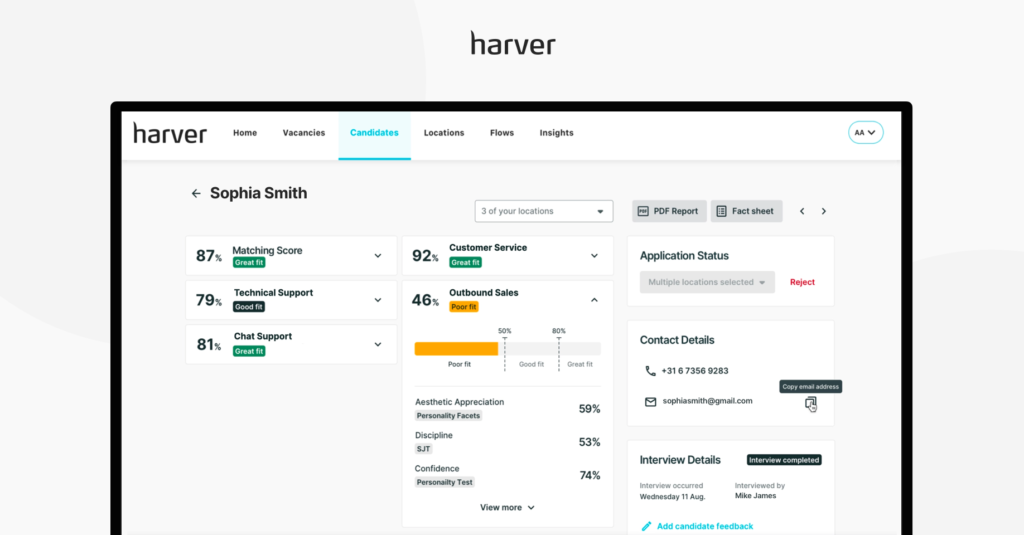
Before we move on to personality questionnaires, one quick note on managing expectations: Why do you need to manage candidate expectations?
Because in hospitality, the leading cause of early attrition in new hires is misaligned expectations with what the job will actually be. After onboarding, too many new employees find that the job doesn’t match their expectations of it, and they quit.
And with the tight labor market we’re currently experiencing – McKinsey suggests that it could take until 2023 before we see recovery reach pre-pandemic levels – doing what you can to reduce attrition is not just a nice-to-have, but a business imperative.
Personality questionnaire
Personality questionnaires are a great way to evaluate applicants for their fit with your organization and your company culture. They work by revealing a candidate’s dominant personality traits and then benchmark each candidate’s score against what you deem desirable characteristics, traits and qualities for outstanding cultural fit.
At Harver, we use a module called Personality Print which is a work-related behavioural assessment.
With this module our customers can assess the match between a candidate’s personality and the role they’re applying for. Candidates are presented with the beginning of a statement, followed by two phrases for finishing that statement, and they need to indicate which phrase matches their preference the best.
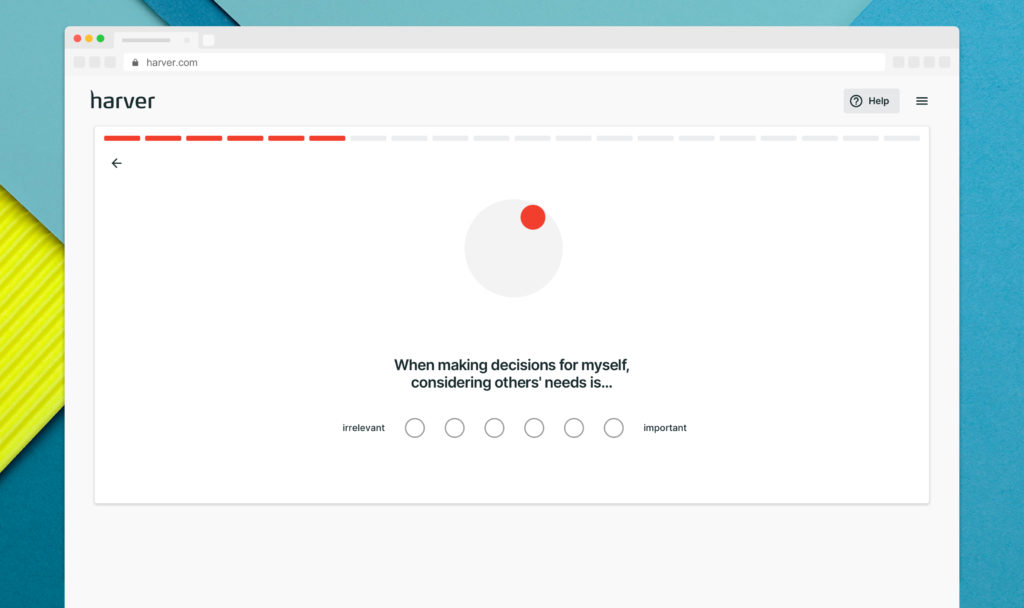
The hourly assessment measures 11 personality traits that are relevant to high volume roles, such as multitasking, organization, follow through, resilience, assertiveness, agreeableness, sociability, and so on. The assessment takes on average 7 minutes to complete.
Because they are scientifically validated – as in, developed by an in-house People Science team comprising I/O psychologists – our assessments are proven to increase your quality of hire, reduce early attrition, and improve the candidate experience for our customers in the high volume space.
If you’d like to see how Haver can transform your hiring process,
book a demo here!
How many assessments should you use?
For hospitality, we generally recommend recruiters use only SJTs and a personality questionnaire; this ensures that the application process doesn’t take more than 10-20 minutes to complete.
Why so few when there are multiple assessments to choose from?
We’ve learned that the more assessments you require candidates for low-complexity, hourly roles to undergo, the higher the drop off rates. Now, drop off isn’t always bad; in a slack labor market, you might actually want to filter more candidates out by using longer assessments, or mixing them with one-way interviews for example.
But in a tight labor market like the one we’re facing today, you need to keep candidates’ attention, so it’s better to keep your assessments short and limit the number you use.
Don’t forget that people who typically apply to entry-level jobs aren’t concerned with their career development, they’re looking mainly for job security and a pay check. And making them answer umpteen questions on complex pre-employment assessments that are only vaguely connected to the job they’re applying for is going to have them abandon the application before they even begin.
Efficiency in your hiring process means candidates spend less time being assessed while still ensuring you can measure the traits and characteristics of interest.
- White paper
Before you continue!
Don’t forget to grab your free copy of our white paper on the digital transformation of restaurant volume hiring. Learn about:
- The challenges currently shaping the restaurant recruitment space
- How restaurant employers can navigate the tight labor market, and the role of technology in a future-proof recruitment process
- The four building blocks of a fully digital recruitment process
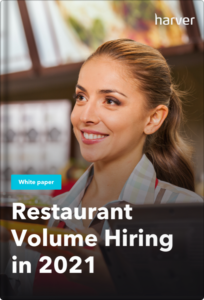
Example candidate selection flow for hospitality roles
Now that we know standard assessments aren’t ideal for selecting right-fit candidates, and that you need a candidate selection flow that’s designed specifically for your roles, you might be wondering: What does a good candidate selection flow for hospitality roles actually look like in practice?
The most basic but highly effective selection flow would be something along the lines of:
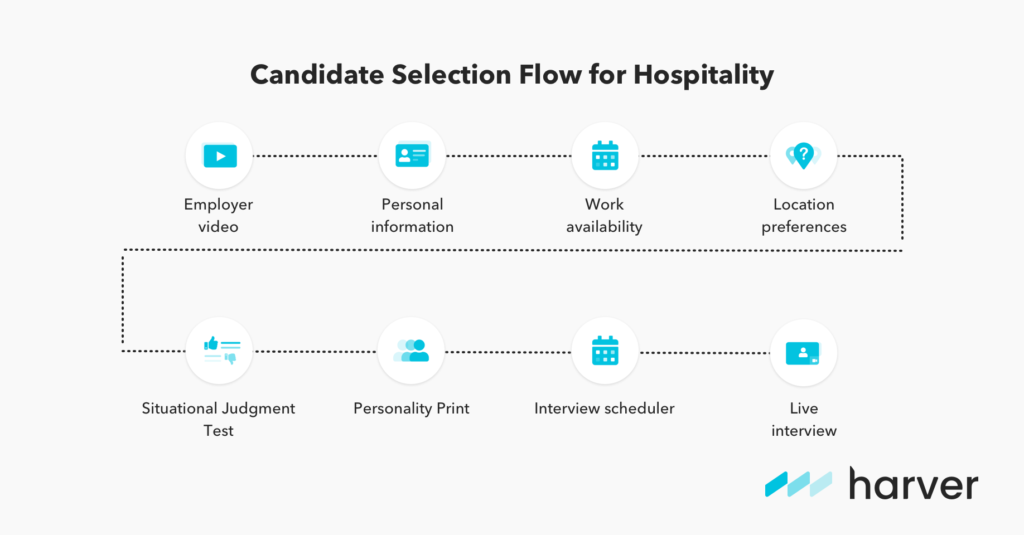
While personal information, availability and work preferences, and the hiring decision stages would be standard, the other stages in the flow should be personalized for your specific needs.
Evaluating the effectiveness of assessments
Once you’ve chosen your preferred pre-employment assessment, you need to ensure you evaluate their effectiveness.
Of course, the first step in measuring the effectiveness of your selection flow and assessments is to get clear on what you’re trying to achieve. Before you implement anything, you need first to understand what success looks like in your business.
Generally, assessments can help you improve within several areas, including recruitment process efficiency, quality of hire, candidate experience, and data collection and analysis. So for assessments specifically, the goal might be to improve the quality of hire and reduce attrition, and for the selection flow as a whole, you might want to measure candidate experience as well.
The latter – CX – is very easy to measure by simply adding a feedback form into your candidate selection flow.
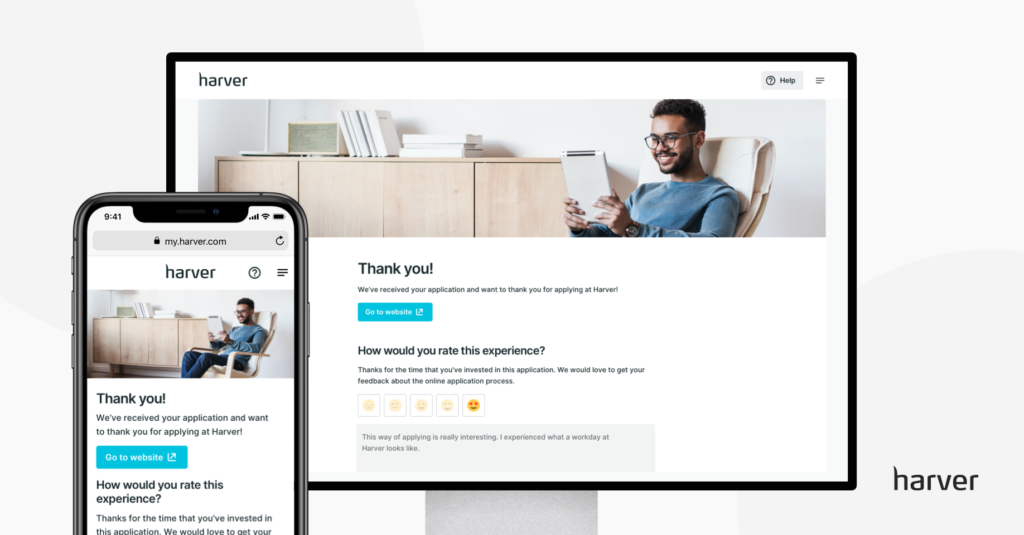
The quality of hire and attrition rates will need to be measured before and after implementing the assessments. For quality of hire, for example, the pre-employment tests used should help you hire the best candidates who can perform their key responsibilities to a high standard and stay in their roles longer.
So for this, you’ll need to define what a quality candidate looks like. Chances are, a quality candidate is someone who goes on to become a top-performing employee, so the natural next step would be to pinpoint the common skills and behaviors of your current employees who shine the brightest.
At Harver, we define these skills and characteristics before developing the custom assessments, as the goal is to ensure that all the tests used help our customers select and hire only candidates who have the potential to become top performers.
So once you know you can rely on our pre-employment assessments to get you high quality candidates, all you have to do is track their performance in time, and see how they compare to top performers. You can do this at 30, 60, 90 days, or less often, depending on how your attrition rates look.
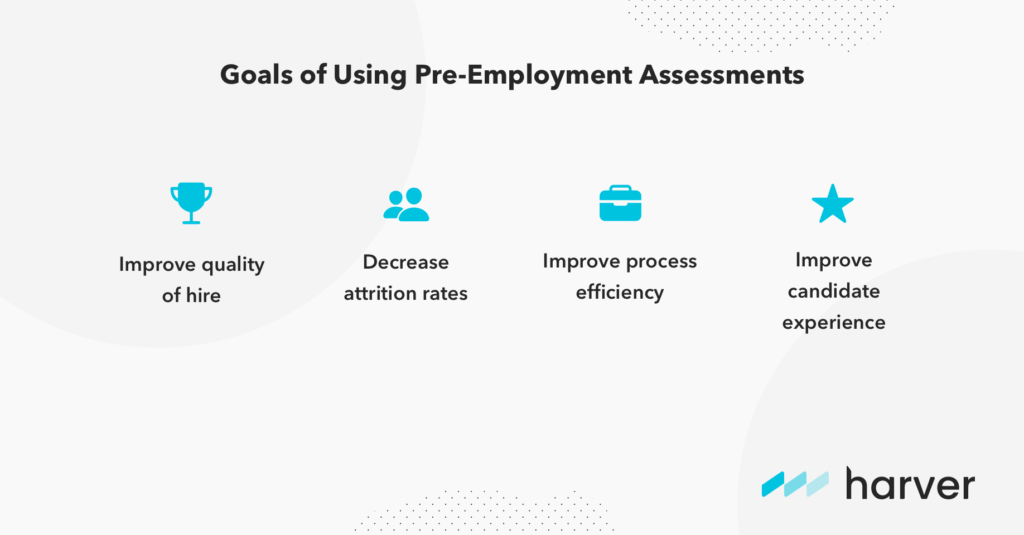
Speaking of attrition, this is another metric that tells you whether your candidate selection process works well or not. If you implement Harver assessments, for example, and notice your attrition rates, quality of hire, and employee performance improving, that’s a sign that the assessments are working.
Yet, there’s one more aspect to consider when evaluating the effectiveness of your candidate selection flow, and that is how reliable your assessments are. Can you rely on them to produce the same results regardless of what the market conditions look like? Can you use the same assessments when the market is tight, or do you need to adjust something in the flows?
This feedback loop helps you constantly improve the effectiveness of your pre-employment screening and select candidates with the right personality traits and skills for your organization.
As for process efficiency, this metric is easy to track in the Harver BI suite, along with other operational and candidate-specific metrics.
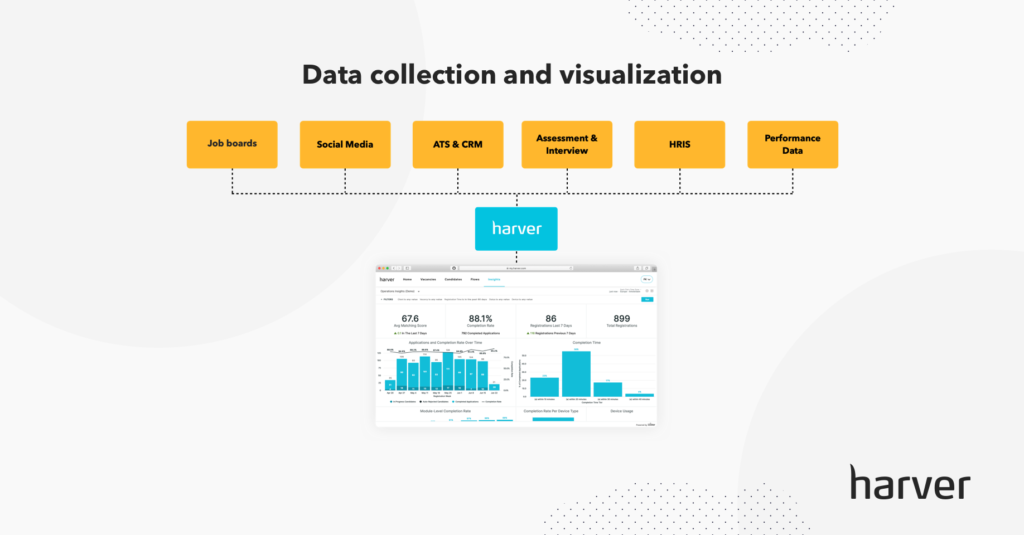
Next steps
Making a bad hire is a costly mistake. Making bad hires when you’re volume hiring is devastating. The cost of replacing employees is one third of their annual salary, which is why pre-employment assessments are essential to improving quality of hire, reducing turnover, and increasing retention rates.
If you’d like to see Harver’s solution for the hospitality industry in action, you can book a demo below.

